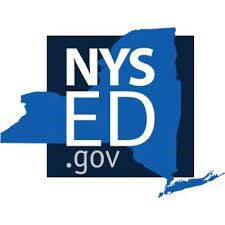GRADUATION MEASURES
The November 2019 session again began with an update on the progress of the Graduation Measures in New York State Initiative. Kim Wilkins, Deputy Commissioner for P-12 Instructional Support, reviewed the initial steps that are being implemented and provided an updated timeline. Preparations are currently being finalized to begin the Information Gathering Phase of the project which will include:
Regional Meetings
Deputy Commissioner Wilkins informed the Board that the Regional Meetings, which will be scheduled for each judicial district across the state, will not begin until after the holidays.
Collection of Stakeholder Feedback
In addition to attending Regional Meetings, stakeholders have various options available to provide and monitor feedback throughout the project including:
1. An email site dedicated solely to public comment (GradMeasures@nysed.gov)
2. A NYSED Listserv
3. Facebook, Twitter, and LinkedIn
4. A Graduation Measures webpage, http://www.nysed.gov/grad-
Review of Current Research and an Examination of Practices in Other States and Countries.
NYSED has contracted with an outside organization, ACHIEVE, to coordinate the review of related research and examine graduation requirements used in other states and countries.
The link below provides a concise review of the goals of the project along with the updated timeline.
PERKINS V GRANT
The Perkins V Grant is a federal allocation of money dedicated to supporting Career and Technical Education (CTE). NYSED staff are currently preparing the new four year proposal to submit to the US Department of Education in April 2020 for the next round of funding.
Deputy Commissioner Marybeth Casey updated the Board on the progress of the proposal and summarized the priorities that need to be addressed.
RAISE THE AGE LAW
Board of Regents members were updated on the implementation of New York’s 2017 Raise the Age Law (RtA) . The legislation reorganized the juvenile and criminal justice system to prohibit the prosecution of young people under the age of 18 as adults. It allows for a more rehabilitative approach in addressing young offenders, which includes how they receive educational support. Kathleen DeCataldo, Assistant Commissioner for Student Support Services, and Tim Bromirski from the Division of Juvenile Justice at the NYS Office of Children and Family Service presented a summary of how the law has changed the way youthful offenders are treated and reviewed some of the challenges schools are facing in their efforts to best meet their educational needs.
As part of the requirements of the Every Student Succeeds Act (ESSA), districts are required to designate a Transition Liaison. The liaison ensures students receive appropriate support services when they transition into, out of, and between residential facilities and academic settings. Since the passage of the RtA law, NYSED staff participated in numerous meetings with representatives from various state agencies associated with the legislation. They have worked to learn about the challenges related to the juvenile justice system so they can provide guidance to Transition Liaisons.
One area that has been particularly challenging for students is the completion of the two credit Physical Education graduation requirement. In residential facilities, students participate in PE but are taught by recreational specialists who may not be certified PE teachers. When students transfer back to high school they are finding themselves severely under credited in PE which can create many scheduling challenges. An amendment was proposed to the Board which would exempt these students from the two credit requirement as long as they are enrolled in PE classes for every semester they are registered in a New York State high school. It is anticipated that this proposed rule will be presented for adoption at the February 2020 Board of Regents meeting.
The link below provides an overview of the presentation and includes the basic components of the RtA Law along with some other potential amendment proposals for the future.
EDUCATOR DIVERSITY
Amid growing concern with regard to the lack of diversity among New York educators, the legislature recently tasked the Education Department with preparing a report which provides an overview of educator diversity data throughout the state.
Board of Regents members were briefed on the initial findings included in the draft report including a significant amount of disaggregated data , key challenges associated with increasing workforce diversity, and examples of current improvement efforts that are being carried out.
Some key points of information in the draft report include:
-The percentage of teachers in NYS who are white remains relatively consistent at 80% despite the increasing diversity of the student population.
-75% of New York teachers are female, 25% are male.
-The percentage of white students enrolled in teacher prep programs has declined slightly while the percentage of persons of color has shown a small increase.
-More than 200 school districts in NYS report that they do not employ any teachers of color.
-In most regions of the state, fewer than 5% of teachers are of color.
-Districts with the highest enrollment of students of color also tend to have the highest numbers of teachers of color.
The link below provides a summary of the information that was presented. It includes disaggregated breakdowns of data and some examples of current initiatives that are occurring across the state to address the problem.
GRADUATION RATES
The Board participated in a follow-up discussion from their September meeting which highlighted schools that either surpass the overall NYS 80% graduation rate for young men of color or have a positive three year trajectory. NYSED, in partnership with PLC Associates, is conducting a comprehensive study of 10 schools across the state that are exceeding the 80% graduation rate. Representatives from Malverne UFSD and Yonkers Public Schools participated in a discussion outlining best practices that are consistent among the schools that have made significant progress.
The link below provides a summary of the presentation that guided the discussion.
STATE AID
The State Aid Subcommittee is continuing to develop their State Aid Proposal. They are primarily focusing on promoting:
-A commitment to fully phasing-in the Foundation Aid formula over the next three years.
-A resource request to expand the State Education Department’s ability to provide technical support for effective district management and governance.






